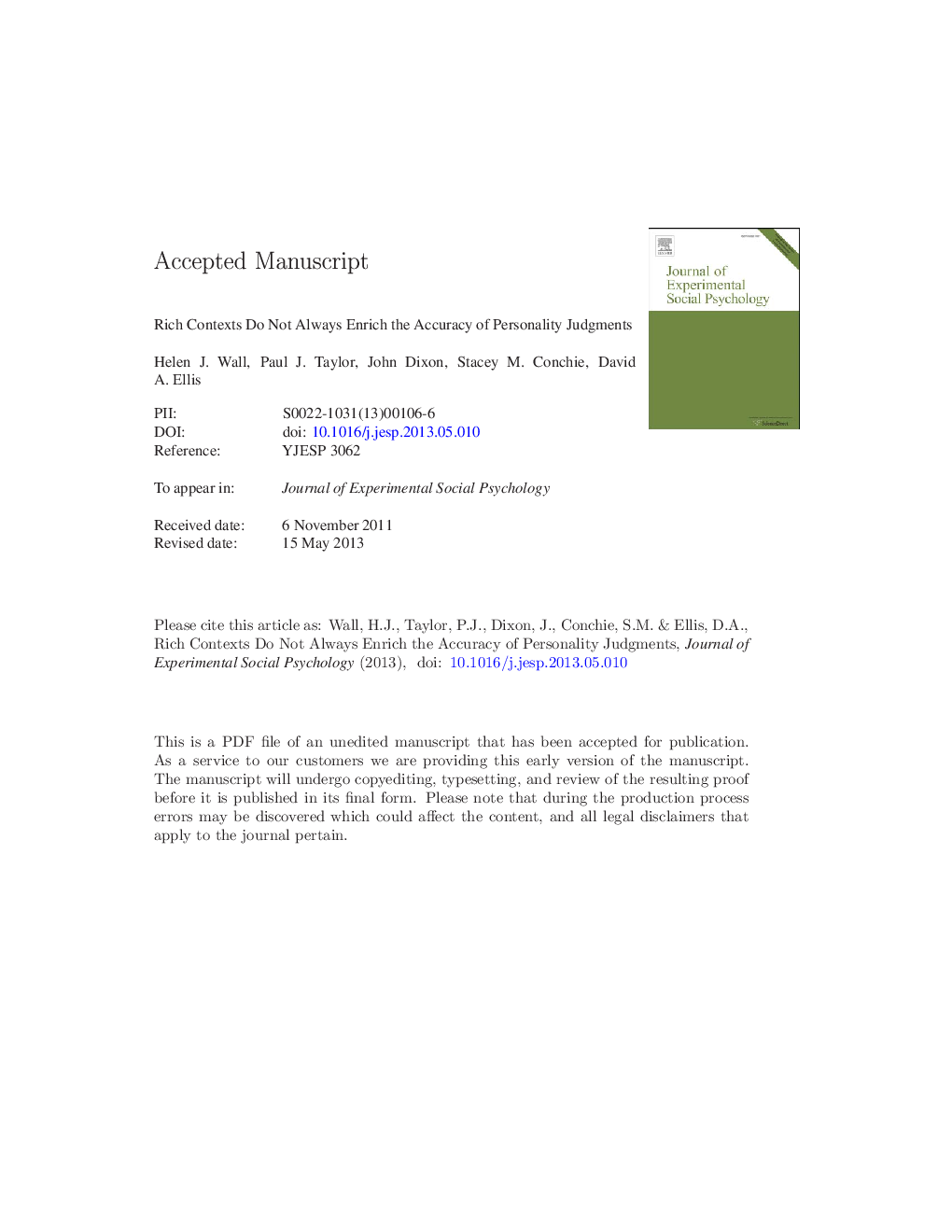| Article ID | Journal | Published Year | Pages | File Type |
|---|---|---|---|---|
| 10468570 | Journal of Experimental Social Psychology | 2013 | 30 Pages |
Abstract
We test the common assumption that information 'rich' contexts lead to more accurate personality judgments than information 'lean' contexts. Pairs of unacquainted students rendered judgments of one another's personalities after interacting in one of three, increasingly rich, contexts: Internet 'chat', telephone, or face-to-face. Accuracy was assessed by correlating participants' judgments with a measure of targets' personalities that averaged self and informant ratings. As predicted, the visible traits of extraversion and conscientiousness were judged more accurately than the less visible traits of neuroticism and openness. However, judgment accuracy also depended on context. Judgments of extraversion and neuroticism improved as context richness increased (i.e., from Internet 'chat' to face-to-face), whereas judgments of conscientiousness and openness improved as context richness decreased (i.e., from face-to-face to Internet 'chat'). Our findings suggest that context richness shapes not only the availability of personality cues but also the relevance of cues in any given context.
Related Topics
Life Sciences
Neuroscience
Behavioral Neuroscience
Authors
Helen J. Wall, Paul J. Taylor, John Dixon, Stacey M. Conchie, David A. Ellis,
